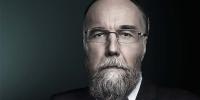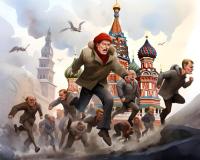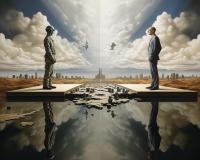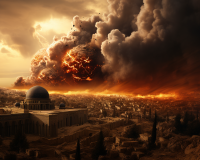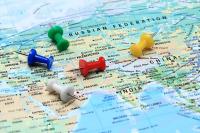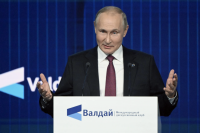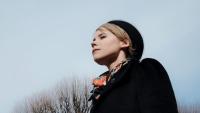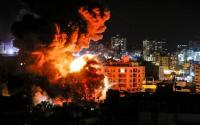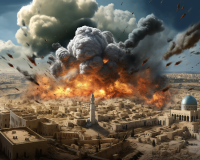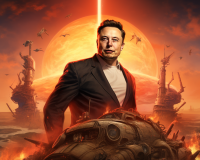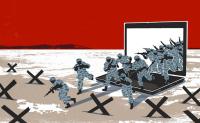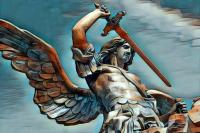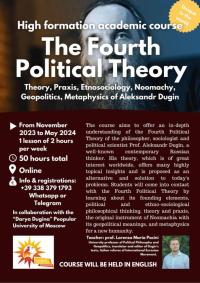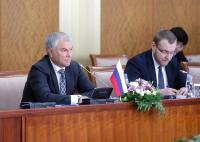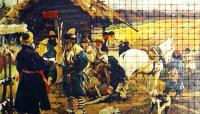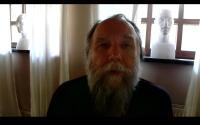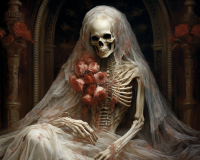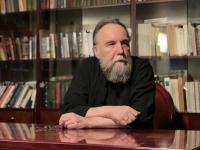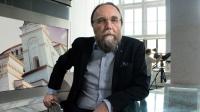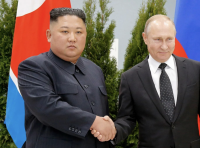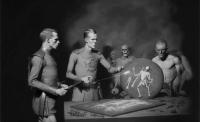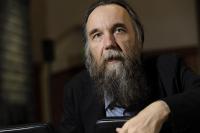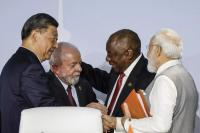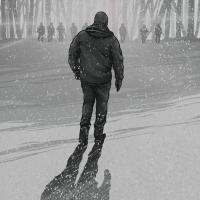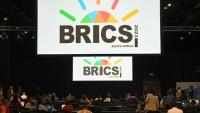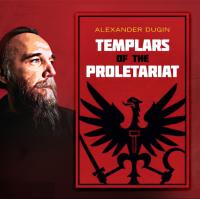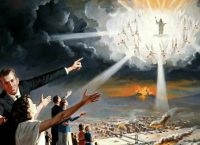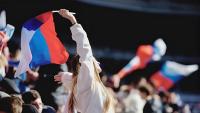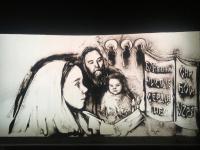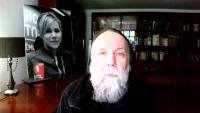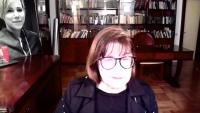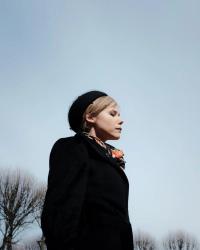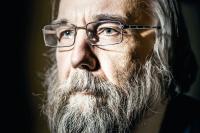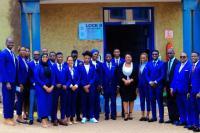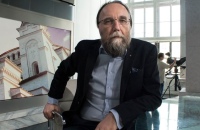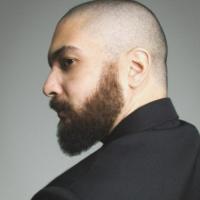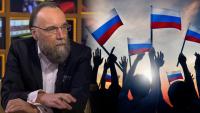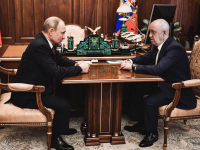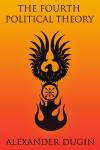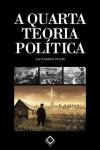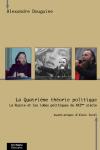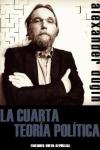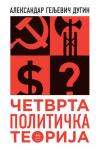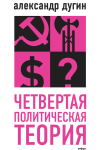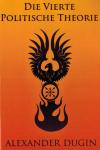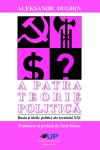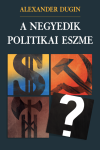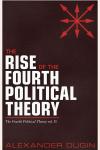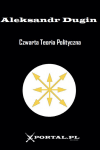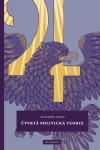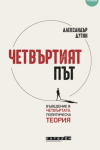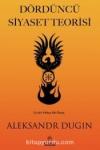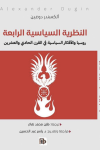End the Liberals: The People’s Hope for Change
Certainly most thinking individuals would agree that in the 1990s, the Russian state was taken over by adversaries who imposed external control over it – over our entire society. Its overarching name is liberalism. Not some ‘bad liberalism’, ‘distorted liberalism’, or ‘pseudo-liberalism’, but simply liberalism. No other kind of liberalism exists. Russian liberals became nodes in this occupation network.
The West Is Not ‘Judeo-Christian’
The escalation of hostilities between Israel and Palestine undoubtedly unifies the Islamic world. Western conservatives once again invoke the defence of a ‘Judeo-Christian civilisation’ in the face of Muslims – the radical ideology of Hamas gives them a convenient pretext. Yet, a society deeply rooted in atheism, materialism, and the legalisation of various perversions, having long abandoned theology and traditional values, can neither be considered Christian nor Jewish.
Storm of Al-Aqsa: Has the Middle East Erupted?
On 7 October 2023, the Palestinian Hamas movement commenced military actions against Israel. Israeli towns and settlements bordering the Gaza Strip were attacked. Hamas’ military wing declared that, during the operation, it had struck over fifty Israeli military positions and captured thirty-five Israeli soldiers and settlers. Israel’s defence minister stated that the Hamas movement had declared war on his nation.
The Pentagon’s new cyber strategy
On September 12 of this year, 2023, the Pentagon published an update of its cyber strategy and released its main points in a 15-page text. The rest of the document is classified. It is known that this fourth iteration of the Pentagon’s strategy implements the priorities of the National Security Strategy, the National Defense Strategy for 2022 and the National Cyber Security Strategy for 2023. The text replaces the Department of Defense’s cyber strategy for 2018 and is designed to “establish a new strategic direction for that ministry.”
Speech by Alexander Dugin at the European Conference on Multipolarity
We are witnessing now very important term, very important shift, paradigma’s shift - the global balance of powers, and I think, that the last meeting of BRICS countries with acceptance of new members it is a point of no return, it is something really historic, because what we see now in a world with this new structure of BRICS.
Breaking with the civilisation of death
We must do a thought experiment and imagine: what else - other than a nuclear attack - could the West do to us that is at war with us? What sanctions to impose? Who to expel? How to humiliate us? Kick us out of where? Deprive us of what? (We are not considering a nuclear attack, because they won't do it, and if they do, it won't matter, because we will do it too).
Moya Semya interviews Alexander Dugin
'A true intellectual, a man for whom his thoughts are more important than his physical existence': this is how they write about the Russian thinker Aleksandr Dugin, the Western press calls the philosopher 'Putin's mentor', 'the brain of the Kremlin', 'the ideological foundation of the SMO'. To destroy him, terrorists blew up Dugin's daughter Daria a year ago. What did she die for and what ideas does Dugin himself support? Interview by Marina Hakimova-Gatzemeyer.
ALTERNATIVE POSTMODERNISM: AN UNNAMED PHENOMENON
Some important aspects of postmodernity should be clarified. It is not a complete phenomenon, and although it was the postmodernists (in particular Derrida) who introduced the notion of 'deconstruction' (based, however, on Heidegger's notion of die Destruktion in Sein und Zeit), Postmodernity itself can be deconstructed, and not necessarily in the postmodern style.
The greatness of Juche, rogue states and greater humanity
Russia's rapprochement with the DPRK is a wonderful initiative. It was the meetings and negotiations between Russian President Vladimir Putin and Kim Jong-un, the hereditary head of the DPRK belonging to the sunny Kim dynasty, that caused a stir at the WEF. The West commented: stop this rapprochement at all costs, ban any movement of Russia and North Korea towards each other.
All-out war
The UAV attack on Russian cities by the terrorist forces of the West (Ukraine is increasingly in the shadow of the war waged against us by NATO) was particularly intense tonight. The voices have finally fallen silent: how come? Who didn't keep watch? We should have watched better! Now everyone is beginning to wonder what to do next.
Speech by Maria Zakharova at the European Conference on Multipolarity, September 4th 2023
Dear colleagues, dear friends,
Global Liberalism in Crisis
The collapse of the Soviet Union in 1991 allowed liberalism to emerge as the undisputed, dominant global ideology. Over the past several years, however, the ideology’s future has come increasingly under question. Populist upheavals in the United States and Europe exposed growing discontent with the inability of liberal institutions to cope with foreign policy and economic failures. At the same time, new emerging powers such as Russia, China, and India among others have begun to put forth their own ideological alternatives.
A heptapolar world
What happened at the XV BRICS Summit in Johannesburg is truly historic. Even if the President of Russia, the founder of BRICS, did not take part in it, it is still a turning point in modern history. The world order is changing before our eyes. Let us parrot the meaning of the ongoing tectonic changes.
Crisis of Global Liberalism
Alexander Dugin, one of the world’s most famous political philosophers, joins us in a new episode of our New Rules podcast
A sovereign economy does not need foreign trade
My (alas deceased) friend, great businessman and patriot, Mikhail Yuriev, once asked me a question: why is the ideal a zero foreign trade balance, i.e. the situation where the country sells as much as it buys (i.e. the volume of imports equals the volume of exports)? It turns out, he concluded, that the ideal would be to reduce foreign trade to zero, a very good point on which he built his curious book Fortress Russia. The main idea is: Russia should close itself off from the world and build an autonomous society based only on our traditional Russian values. If you want a perfect foreign trade balance, do it. That is a very productive way of thinking.
The Lady of Tradition
I thank you all from my heart all those who commemorate the tragic day 20 august 2022 when my daughter Darya was brutally killed by Ukrainian terrorist woman. I thank all my friends and friends of Darya for Your condolences and sharing my deep sorrow. I also thank you for publishing the different books written by Dasha or dedicated to her memory.
Existential politics
In the history of 20th century philosophy and political science, everything associated with existentialism is opposed to politics. It is the existentialism of Sartre, Camus, leftist existentialism, which serves as a basis for criticising political structures and political systems, because it is a remote response to Heidegger.
The West has moved on to Operation Punishment
Until recently, it was said at all levels of government that Russia is part of Western civilisation, a European country, and indeed it is, it is a child of the West, it is obvious that the West is older, more central and more responsible to its own civilisation, or one can even say that the West is a father, a parent. According to the formula 'Russia is a European country', the West taught Russia what it could do and what it could not do. Yes, the baby was huge and formidable but, from the West's point of view, wild, stupid and probably sick.

